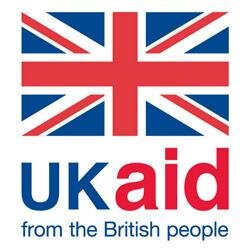Ghana Education
Enabling Education for Children with Cerebral Palsy in Ghana.
Global Sustainable Development Goal 4 – Ensuring inclusive and equitable quality education and promoting life-long learning opportunities for all
Cerebral Palsy Africa is a proud and delighted grant award winner of the UK Aid Direct Small Charities Challenge Fund for our project Enabling Education for Children with Cerebral Palsy in Ghana.
This is a two year project in which our trainers, assisted by Ghanaian physiotherapists and special needs teacher trainers will train 19 special needs teachers from different schools around the country to handle children with cerebral palsy safely and help them to learn. The teachers will also learn how to make the kind of seating and tables out of waste paper and cardboard that enable the children to be supported in good positions and so be more able to write.
This project will enable these 19 teachers to provide opportunities for many more children with cerebral palsy to attend school and to benefit from expert handling and facilitation for their learning from the newly trained teachers.
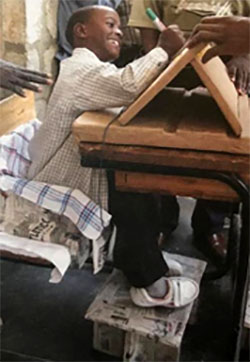
During the course of the two years the teachers will hold community meetings to draw in supporters to help gather cardboard to make chairs and standing frames, to help in the classroom so that the teachers have more time to devote to individual children and to build ramps so that children in wheelchairs will be assured of access to classrooms and toilets. This community involvement will not only help the children’s learning but will draw communities into the process of changing the children’s lives through education. Seeing the children progress as a result of their work will help to reduce the fear and stigma in which such children are mostly held.
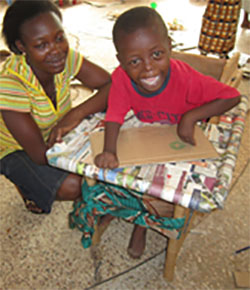
Since 2005 we in CPA have worked in Ghana training physiotherapists and community based rehabilitation workers to bring therapy to children with cerebral palsy and to work with families so that they can use everyday activities as opportunities for the children to develop independence and reach their full potential to be part of their communities. We have also taught mothers and technicians to make the chairs and standing frames from cardboard that are essential for the children to use at home to learn to sit and stand; to use their hands to play and feed themselves. This supportive equipment can be made at home using simple tools but we insist on strict adherence to the engineering principles that make weak paper and cardboard into strong, durable and safe items that families are proud to own.
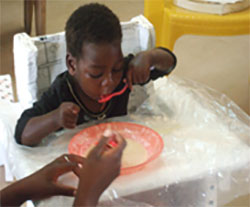
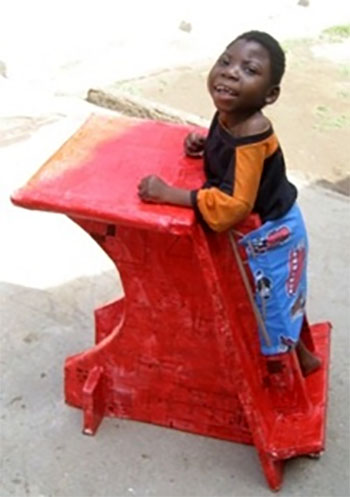
During all those years we heard the grief of parents and children themselves that they were not accepted in school. Thanks to the efforts of the Samuel Wellington Botwey organisation the CP Conference for all stakeholders was held in Ghana in 2017. This ended with a communique to the Ghana government, asking among other things, that they provide training for teachers so that children with cerebral palsy could be accepted in schools. CPA and our partners in this project, Multikids Africa (MKA) played active parts in this conference. Through MKA’s close connections to the Ghana Education Service, as a result of the high regard in which this organisation is held in Ghana through the example of their inclusive education programme, a plan was made that CPA in partnership with MKA should apply to UK Aid Direct for funding.
We are so glad to be able to announce that this application was successful and thanks to UK Aid Direct we are now embarking on this exciting project.
Facts about the UK Aid Direct Small Charities Challenge Fund
- SCCF provides grants of up to £50,000 to UK registered charities with an annual income of £250,000 or less.
- Applications can be made at any time and are reviewed every six months.
- SCCF was launched in July 2017 as part of UK Aid Direct and was designed to strengthen small UK based charities working towards achieving the Global Goals.
- SCCF is the first DFID fund designed specifically with small UK based charities in mind, and feedback from these organisations informed its design. For example, the SCCF operates a one stage application process, a streamlined due diligence and a tailored payment in advance approach.
- In the second round of SCCF, 90% of applicants had not previously received DFID funding and 62% of shortlisted applicants were based outside of London and the South East.
